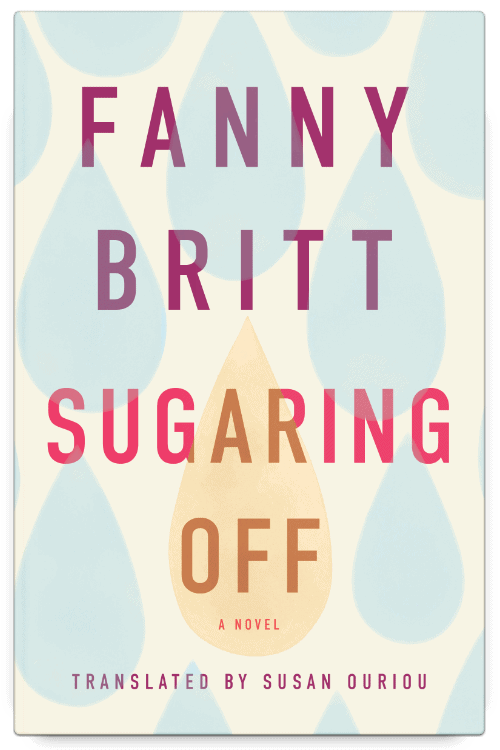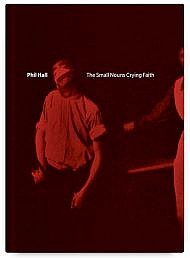Winner of the Governor General’s Literary Award for French-Language Fiction, Sugaring Off probes intimacy, denial, and how we are tied to others—whether those we love or those we exploit.
On the surface, Adam and Marion are the embodiment of success: wealthy, attractive, in love. While holidaying in Martha’s Vineyard, Adam surfs into a local young woman, Celia. The accident leaves her injured and financially at risk; for Adam and Marion, it opens a fault of loneliness, rage, and desires that have too long been ignored.
Like a modern Virginia Woolf, Britt abrades the surface layer of our outward personas, delving into the complexity and contradictions of relationships. In this eviscerating critique of privilege, she asks what happens when one can no longer play a role—whether in a couple, family, or social structure—and exposes the resulting friction between pleasure and consequence.
Praise for Sugaring Off
“Sugaring Off is a stunning exploration of class and privilege, and our desperate need for connection. In this deftly written story, Fanny Britt explores the dissolution of relationships, regret and grief, and how we navigate the consequences of our actions. A truly exceptional novel.” —Lindsay Zier-Vogel, author of Letters to Amelia
“A beautifully human novel about secret lives and chance encounters. In Sugaring Off, Fanny Britt writes with wisdom, tenderness, and razor sharpness about those moments of collision that remake a life. She dares to surface the lines of accident and fate that pulse between us—when it is a stranger and not an intimate who leads us back to ourselves. A novel operatic and cosmic in scale, but delivered with a visceral swiftness and sensitivity, Sugaring Off is gorgeous, profound, and never without humour.” —Claudia Dey, author of Daughter
“An accurate, uncomplacent depiction of Western society and of the disparity that exists between classes and ethnicities, this brilliantly written story joins the family of great North American novels and asks one fundamental question: however privileged we may be, is it possible to live without relying on others? In this clever and lucid fresco, complex characters are confronted with crises which are not unconnected to the paradoxes inhabiting them.” —Governor General’s Literary Award for French-Language Fiction Jury Citation
Press Coverage
“A moving tale of human experience heralding social change.” —Le Devoir
Most Anticipated: Our Fall Fiction Preview —49th Shelf
“The way the words hinge between inner thoughts and spoken dialog, not to mention a pitch perfect representation of hypocrisy and how well we can know one other intimately shows Britt’s masterful observation of human foibles.” —Emily Weedon, Rambles on Books and Writing
64 Canadian fiction books to read in fall 2024 —CBC Books
Fall book preview: 62 new titles to read this season —Emily Donaldson, The Globe and Mail
Homegrown 2.0: Locally Produced Reads —All Lit Up
A New Leaf: 12 Books to Read in October —Zoomer Magazine
Interview with Susan Ouriou and Read an Excerpt from Sugaring Off —Armed with a Book
“Sugaring Off reveals comfort to be an illusory commodity that, once gone, becomes nearly impossible to access again. No one is untouched by pain — physical, emotional, or any other kind.” —Emily Latimer, Literary Review of Canada
“Sugaring Off is deftly translated by Ouriou, and asks several pointed questions about grief, family, and who gets to have space to mourn.” —Alison Manley, The Seaboard Review
A Spotlight on Books in Translation: Antonia Reed Interviews Fanny Britt and Susan Ouriou —CBC Radio’s All in a Weekend with Sonali Karnick
“What Have You Got to Cry About”: A Review of Sugaring Off by Fanny Britt —Michelle Hardy, Prism International
“In Sugaring Off, a near-death experience, a sugar shack, and the search for belonging intersect, taking readers on a journey that examines how certain experiences are valued over others, and delving headfirst into themes of privilege and belonging.” —Ashley Fish-Robertson, Montreal Review of Books
2025 ALU Reading Resolutions —All Lit Up
“Fanny Britt slyly explores what happens when the classes collide and effectively remove the sheen of privilege from the privileged.” —Thalia Stopa, Scout Book Club, Scout Magazine
About the Author
FANNY BRITT is a playwright, writer, and translator. She is the winner of multiple Governor General’s Literary Awards, a Libris Award, a Joe Shuster Award, and was nominated for a Governor General’s Literary Award for Children’s Literature. Faires les sucres won the Governor General’s Literary Award for French-language Fiction in 2021. Britt has written a dozen plays and translated more than fifteen works by many American, Canadian, British, and Irish playwrights. Born in Northern Quebec, Britt lives in Montreal.
SUSAN OURIOU is an award-winning literary translator (French and Spanish to English) and fiction writer. She has been a finalist for the Governor General’s Literary Award for Translation on seven occasions, winning for her translation of Pieces of Me by Charlotte Gingras. She also translated Catherine Leroux’s The Future, winner of CBC Canada Reads in 2024. Other translations of hers have been featured on the International Board on Books for Youth’s honor lists. Ouriou is also the author of two novels, Damselfish, and the critically acclaimed Nathan, and the editor of two anthologies, the trilingual Beyond Words: Translating the World and the bilingual Languages of Our Land: Indigenous Poems and Stories from Quebec. She lives in Calgary.






